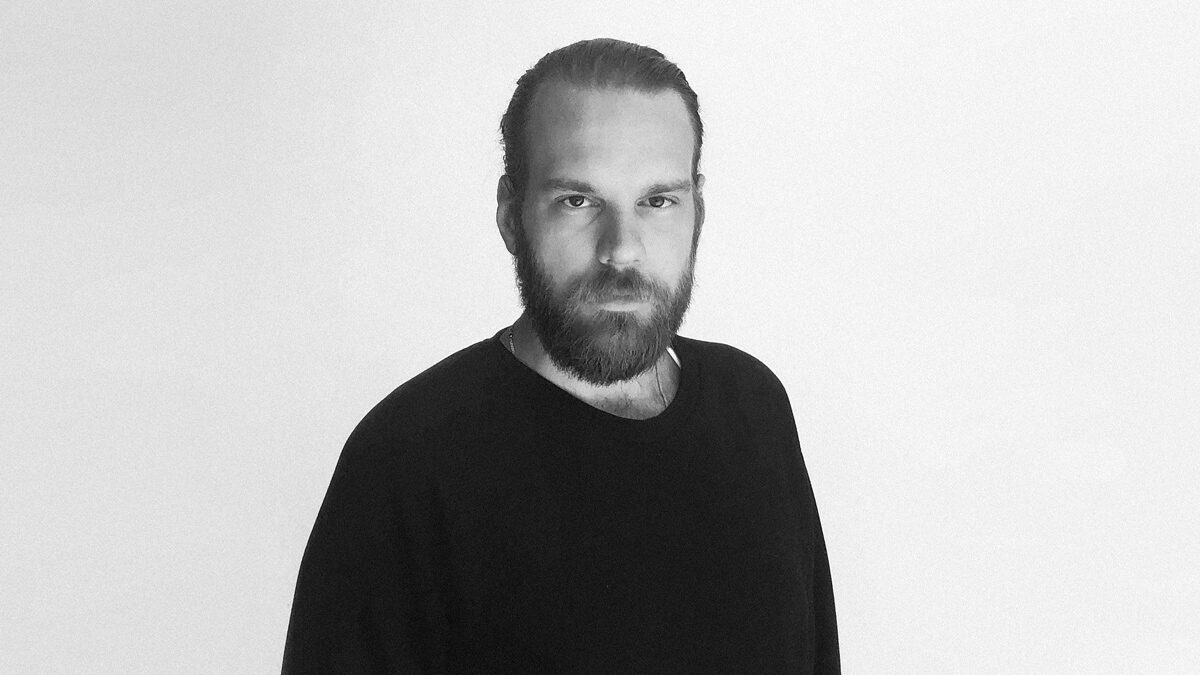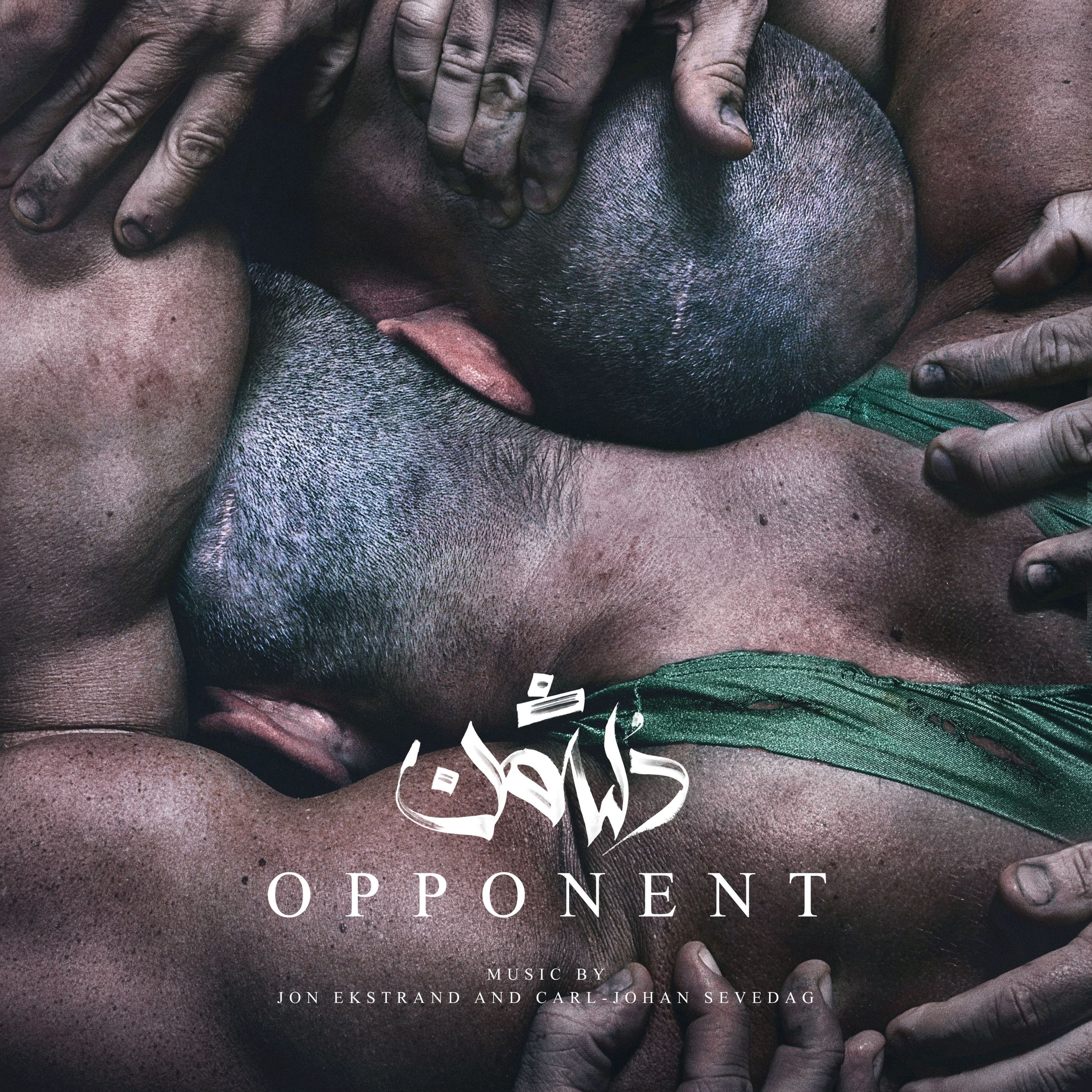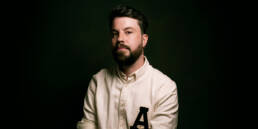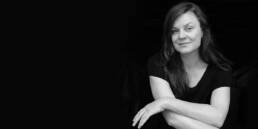
Swedish composer duo Jon Ekstrand and Carl-Johan Sevedag have collaborated successfully together on several films and series over the years, including Borg vs. McEnroe, Horizon Line, Alex, and Top Dog.
The composers admitted having felt a special connection ever since their first collaboration and feeling very comfortable with one another. When the two of them are involved in a project, there is no room for egos. Their workflow is smooth, they complement each other in a really good way, have fun, and manage their stress levels better even when deadlines are tight.
One such example is Opponent, Milad Alami´s new feature film, for which they’ve only had three weeks to produce a score. The film is an intense psychological drama dealing with masculinity, intimacy, and violence, and the composers have done a great job of supporting the story.
Stella: Let’s chat about your newest project, Opponent. How did you get to work on this film?
Jon: We got contacted quite late in the process because they had already a composer on and unfortunately as it can be on some projects that didn’t work out. When we got approached, we had very little time, but I think both me and Carl-Johan felt that it was a really interesting project. We talked to Milad [Alami], the director, and we basically asked to see the movie without any temp music or what was done before. And we both kind of quickly saw what we wanted to do with it, and we told him that we had a lot of ideas. I think that made him really excited. So, we started directly almost after seeing the movie for the first time.
Carl-Johan: Yeah, we kind of had to. We had three weeks, I think, before the mixing final mix deadline. It was a short notice.
Jon: Yeah, we had to be patient. [laughing]
Carl-Johan: Yeah, super patient.
 STILL FROM ‘OPPONENT’ (MOTSTÅNDAREN)
STILL FROM ‘OPPONENT’ (MOTSTÅNDAREN)
Stella: Did Milad give you any instructions or did he just let you guys do what you thought worked best?
Carl-Johan: Milad, pretty much from the get-go, was very open-minded. And instead of giving us a brief he kind of just wanted us to try some stuff out and present to him our vision for the general theme and soundscape of the movie. And luckily for us, he had landed very well. [laughs] He liked our vision.
Stella: Did you score directly to picture?
Jon: Directly to picture. We saw the movie, we called Milad, talked to him for half an hour or something, and then we just said, ‘Okay, where do we go?’.
Carl-Johan: But that’s the nice part of coming in so late into a project because usually the picture’s locked. You can just put your stamp on straightaway. Not so much back and forth.
Jon: The good thing about being two [composers] is also that you can make decisions throughout the process, you can work really fast instead of sitting and doubting for a day over a cue. It’s like, ‘is this right or not?’. Here, it’s so instant that you can tell, ‘No, this is not working.’ or ‘Okay, perfect. Let’s do something else.’.
 STILL FROM ‘OPPONENT’ (MOTSTÅNDAREN)
STILL FROM ‘OPPONENT’ (MOTSTÅNDAREN)
Stella: It must have helped that you guys had collaborated before. You know each other’s pace and way of working.
Carl-Johan: For sure.
Jon: Yeah, I think we have a worked-in routine of how to work with each other. And especially on this project, we were here in my studio, and we basically just decided we shouldn’t bring in any other musicians and play all the instruments ourselves to make it also as quick as possible. Which was funny because we can play a lot of instruments but we’re not that good on playing them.
Carl-Johan: [laughing] Especially not these ones.
Jon: [laughing] Exactly. Especially not these ones we chose. We saw quite quickly that it actually added something to the feeling of the score, that there is a little bit of vulnerability when they’re not that super well-played some of the instruments. I think we really liked when we found that out and felt it when we saw the picture. It was great fun doing it that way also because it becomes so direct.
Stella: It’s raw.
Carl-Johan: Yeah.
Jon: Yeah, exactly – raw. And I really appreciate that.
Stella: I feel that it mirrors the main character’s indecisiveness and internal turmoil as well.
Jon and Carl-Johan: Exactly.
 CARL-JOHAN SEVEDAG
CARL-JOHAN SEVEDAG
Stella: What inspired you to select all these instruments and create such a unique combination?
Carl-Johan: We wanted to capture this Scandinavian feel. For example, with the nyckelharpa – the key fiddle. As soon as you play a note on that it’s like, ‘Okay, we’re up North.’. [laughing]
Jon: [laughing] Yeah.
Carl-Johan: And then we also had the Iranian ney flute.
Jon: We also had duduks and the Japanese shakuhachi which is a primitive flute in the way of playing. It’s really hard to get into if you’re not a master on playing it – which we’re not. And there was clarinet. Basically, we took all the instruments that we thought could really be interesting for the sound. I have a lot of instruments in my studio and Carl-Johan in his so we kind of collected everything together and went from there.
Stella: Was the idea to capture a bit of Iman’s world back home and a bit of his current life and situation?
Jon and Carl-Johan: Exactly.
Jon: I wouldn’t say it’s an Ethno score, but there’s a small fragrance of it in some cues.
 JON EKSTRAND
JON EKSTRAND
Stella: What did your process look like daily? And how did you guys manage to pull this off so fast?
Carl-Johan: Did we say that we were trying to do five minutes of music a day to be able to pull it off?
Jon: Yeah, I think it was five or six minutes. We went to the studio, did six minutes and then we left. Or on some days we did more because we had a flow. But it was really meeting at my studio at 9 o’clock, and leaving when we felt we were done.
Carl-Johan: I think we started focusing on the fighting scenes first, as we felt that that was the trickiest to pull off.
Jon: When you see the movie, the wrestling scenes, in a way, they’re action-wrestling scenes, but they’re not really, and you can’t really do what you would do, maybe, in a normal sports movie. I think we’ve quite quickly understood that this probably was the hardest one to nail down because we didn’t want to go for the kind of heroic, macho stereotype, because it’s not that kind of movie, you know?
“I think it’s a luxury in this day and age to work on a movie where you’re not forced to put music in every scene, but you actually let the movie breathe a little bit by itself […].”
Carl-Johan: But also, since we did five, six minutes every day, once we came in the next day, we’d kind of marinated overnight in what we had done, and then maybe we had a bit of a better idea of what needed to be done the next day. I like that type of workflow. It’s very efficient and is very inspiring also.
Stella: Only the key scenes are scored and everything else is silent. Was it you or the director who made that creative decision?
Jon: It was both, actually. That I think helps the authenticity of it and really makes it a little bit more real and more like a documentary instead of underscoring everything and all the dialogue and putting everything in a package. And also, in this way, when the music comes, it means something instead of just following everything. It underlines a much heavier mood and feeling.
Carl-Johan: I think it’s a luxury in this day and age to work on a movie where you’re not forced to put music in every scene, but you actually let the movie breathe a little bit by itself and you let the audience land a bit in the scenery and in the scenes that actually need music instead of forcing music upon the audience all the time.
 STILL FROM ‘OPPONENT’ (MOTSTÅNDAREN)
STILL FROM ‘OPPONENT’ (MOTSTÅNDAREN)
Stella: Did you guys disagree on things during this process – either between each other or with the director – or were you all on the same page all the time?
Jon: We were on the same page; I don’t know if it was because everybody knew it was just three weeks that we had, but yeah, everybody was surprisingly on the same thing. I think the producers, when they heard some of the key harp, they were like, ‘Maybe a little bit less of the key harp…’, because they thought it was just noise. [laughing] But Milad was loving the noise.
Carl-Johan: I don’t know if they did anything in the mix that we aren’t aware of, but it sounds good to me.
Jon: Yeah, me too.
Stella: During this process, have you discovered any new techniques or new sounds that made you think, ‘Ah, I love this! I’m going to use this again.’?
Carl-Johan: I really like the bass drum. It’s pretty much the same bass throughout the whole movie. I don’t remember exactly how we made it…
Jon: That’s the 808 Module, but it was through the Moog analog bucket-brigade delay. I really like that sound too.
Carl-Johan: That one I want to use. On every score.
Jon: And I like the flutes of the Mellotron that are irregular and really random, especially during the fight scenes. That was a sound that I really like and want to use more.
Carl-Johan: Yeah, it was an eye-opening experience when we realized that we could put an arpeggio on the Mellotron and get this.
Stella: If you had more time, what would you have done differently? If anything.
Carl-Johan: If we knew from the beginning, maybe we would have started thinking about taking in real instrumentalists.
Jon: Yeah, maybe. Or like an ensemble or something. I don’t know if that would have been the best way. It’s funny to think about but maybe we would’ve done a more overthought score, and maybe not that good and direct. Because now, when I listen back to it, I feel like there is something of the instant connection, there is no fussing around and trying to make it beautiful, or pretty, or anything like that. And maybe we would have killed that with more time, we would’ve made it more of a clean package. I don’t know. It’s hard to know.
Stella: There’s a school of thought that says having a deadline is freeing because it can be a torture to have all the time in the world as it will never feel good enough.
Jon: Totally. I don’t think I can write music for myself without deadlines. I need deadlines to actually finish projects. Otherwise, I would just sit and experiment all day just doing nonsense music.
Carl-Johan: I think the best stuff from what we’ve done together it’s been with the short deadlines. That’s when we’re just banging up. [laughing]
Jon: [laughing] Yeah.
 STILL FROM ‘OPPONENT’ (MOTSTÅNDAREN)
STILL FROM ‘OPPONENT’ (MOTSTÅNDAREN)
Stella: There are two main predominant themes in the movie – the topic of refugees and that of repressed homosexuality. What are your thoughts on these matters, considering they’ve been hot topics over the past few years?
Jon: I think we both felt really strong about it because I think these are really important things that we’re talking about here. And for me, these are the movies I want to make. I want to do movies that mean something. I have done a lot of other movies, but those I would consider more like work. And doing the other films is actually helping me to do these films because then you can relax a little bit economically because usually for things like this, there aren’t that big budgets. As soon as we got pitched the synopsis by Milad, we basically said, ‘OK, this sounds really interesting. We want to see the movie.’. After that, we kind of looked at each other and said, directly, ‘Of course we’re going to do this; it’s important.’.
And what I think is really interesting also is how much more important the actual story has become since we finished the movie because then the new revolution in Iran with the women made it much, much more important. I think the ending in the movie also means a lot more in a way for the audience because now the audience understands what a big decision he actually makes in the end.
Stella: Do you have any exciting projects coming out?
Jon: Daniel Espinosa, who I’ve been working with a lot, has done a European feature film, very much independent compared to the other movies that we’ve done lately together. And that has been great fun. It’s called Madame Luna. We’re heading into final mix. Mid-April or something like that. I think they’re really hoping for getting it out on the festival circuit. It’s a very powerful and very beautiful film in many ways.
Stella: Can you share anything about the music you wrote for it?
Jon: I actually got a little bit inspired from Opponent. My instrument that I learned as a kid was the clarinet but I played it from when I was seven till maybe 12; I was never really good at it. But on Opponent we used it on a couple of cues and it works so well. So on Daniel’s movie, basically, it’s just me playing the clarinet on the whole score and a little bit synths, but I would say that the main instrument is clarinet.
Carl-Johan: I’m doing Bartosz M. Kowaltski‘a next film. I’m going to start working on it at the end of the summer. Can’t say too much about it quite yet. But it’s going to be cool.
Stella Lungu
Stella is the Editor-in-Chief of The Cinematic Journal. She is also the Managing Director of Wolkh, a PR, Marketing and Branding agency specializing in Film, TV, Interactive Entertainment and Performing Arts.
An Interview with Anna Drubich
Anna Drubich is a Russian-born composer of both concert and film music, and has studied across…
A Conversation with Adam Janota Bzowski
Adam Janota Bzowski is a London-based composer and sound designer who has been working in film and…
Interview: Rebekka Karijord on the Process of Scoring Songs of Earth
Songs of Earth is Margreth Olin’s critically acclaimed nature documentary which is both an intimate…
Don't miss out
Cinematic stories delivered straight to your inbox.
Ridiculously Effective PR & Marketing
Wolkh is a full-service creative agency specialising in PR, Marketing and Branding for Film, TV, Interactive Entertainment and Performing Arts.



